Showing all 11 results
-
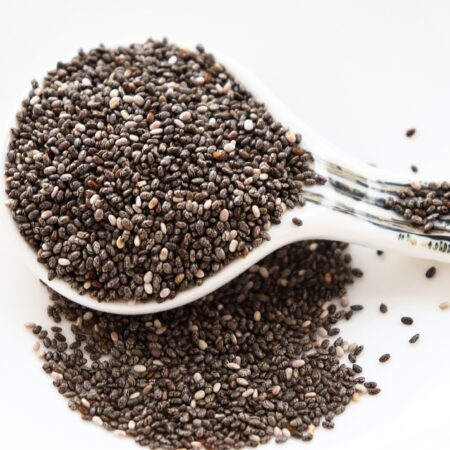
Chia Seeds
Chia seeds are small, nutrient-dense seeds derived from the Salvia hispanica plant. Chia seeds are a nutritional powerhouse, containing omega-3 fatty acids, fibre, protein, antioxidants, vitamins (especially B vitamins), and minerals (including calcium, phosphorus, and magnesium). Chia seeds can absorb many times their weight in water, forming a gel-like consistency. This unique property helps keep you hydrated and promotes a feeling of fullness. Chia seeds are one of the richest plant-based sources of alpha-linolenic acid (ALA), a type of omega-3 fatty acid. These fatty acids are essential for heart health and cognitive function.
-
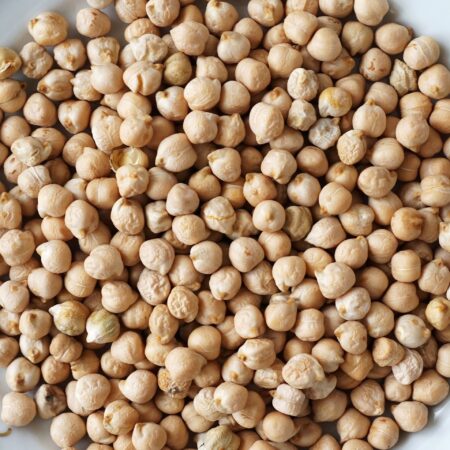
Chickpea Seeds
Chickpeas, also known as garbanzo beans, are edible seeds belonging to the legume family. Chickpeas are one of the oldest cultivated legumes and are widely used in various cuisines around the world. Chickpeas are a good source of plant-based protein, dietary fibre, vitamins (especially B vitamins), and minerals (including iron, phosphorus, and magnesium). The high fibre content in chickpeas supports digestive health, regulates blood sugar levels, and helps with weight management.
-
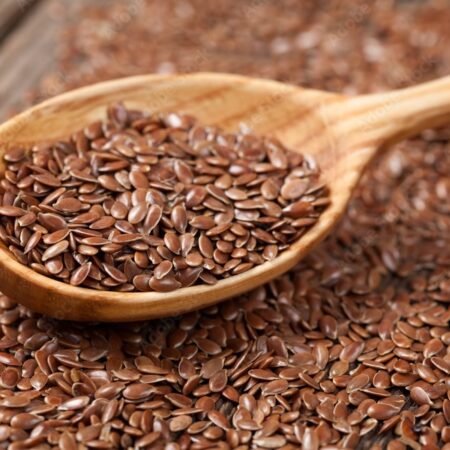
Flax Seeds
Flax seeds, also known as linseeds, are tiny, brown or golden seeds harvested from the flax plant (Linum usitatissimum). Flax seeds are a nutritional powerhouse, containing omega-3 fatty acids, fiber, protein, vitamins (especially B vitamins), and minerals (such as magnesium and manganese).Flax seeds are one of the richest plant sources of alpha-linolenic acid (ALA), a type of omega-3 fatty acid. These fatty acids are essential for heart health and cognitive function.The high fiber content in flax seeds, both soluble and insoluble fiber, supports digestive health and helps regulate blood sugar levels. Flax seeds are associated with various health benefits, including lowering cholesterol, reducing inflammation, and supporting cardiovascular health.
-
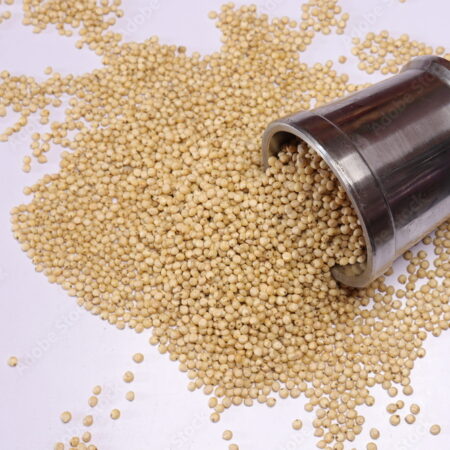
Jowar Seeds
Jowar, also known as sorghum, is a grain that belongs to the grass family Poaceae. Jowar seeds are whole grains harvested from the sorghum plant. They come in different varieties, including white, red, and brown. Jowar is rich in nutrients, providing complex carbohydrates, dietary fibre, protein, vitamins (especially B vitamins), and minerals such as iron and phosphorus. Jowar is naturally gluten-free, making it a suitable grain for those with gluten sensitivities or celiac disease.
-
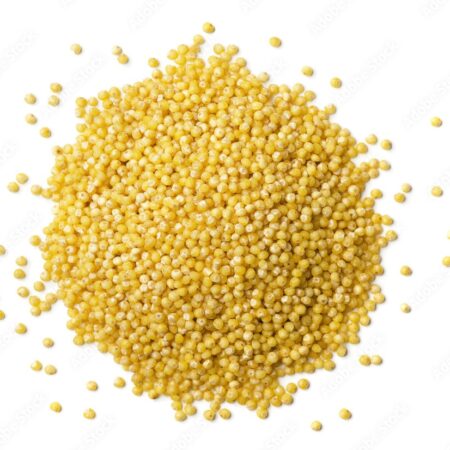
Millets Seeds
Millets are a group of small-seeded grasses that have been cultivated for centuries as a staple food in many parts of the world. Millets are rich in nutrients, including dietary fiber, protein, vitamins (B vitamins, particularly niacin and B6), and minerals (such as iron, magnesium, and phosphorus).Millets are naturally gluten-free, making them suitable for individuals with gluten sensitivities or those following a gluten-free diet.Millets are versatile and can be used in various culinary applications. They are commonly consumed as whole grains, flour, or flakes and can be included in dishes like porridge, bread, pancakes, and more.Many millet varieties are well-adapted to arid and semi-arid regions, making them resilient and sustainable crops in areas with water scarcity. Millets offer health benefits, including aiding digestion due to their fiber content, providing sustained energy release, and contributing to overall cardiovascular health.
-
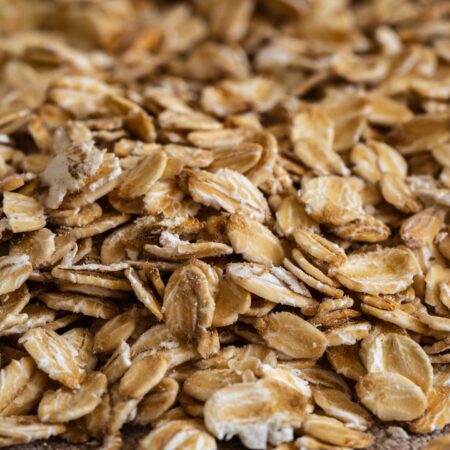
Oats Seeds
Oats are a type of cereal grain, and their seeds are commonly known as oat groats. Oats come from the plant species Avena sativa. Oats are a highly nutritious whole grain, rich in dietary fibre, complex carbohydrates, protein, vitamins (especially B vitamins), and minerals (including iron, magnesium, and phosphorus). Oats are considered a whole grain, retaining the bran, germ, and endosperm, which contributes to their nutritional richness. Oats contain beta-glucans, a soluble fibre known for its heart health benefits. Regular consumption may help lower cholesterol levels. The fibre in oats, including both soluble and insoluble fibre, promotes digestive health and helps maintain regular bowel movements.
-
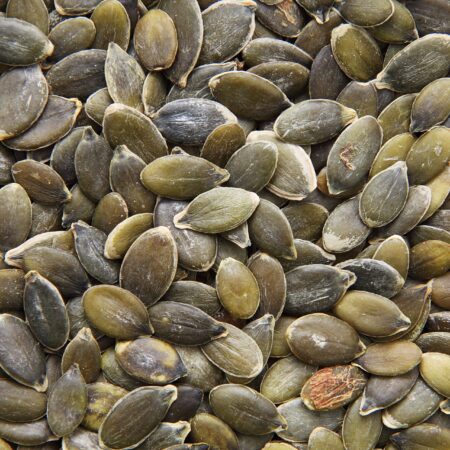
Pumpkin seeds
Pumpkin seeds, also known as pepitas, are the edible seeds found inside a pumpkin. Pumpkin seeds are flat, oval-shaped seeds with a white outer shell. The inner kernel, known as the pepita, is green and has a mild, nutty flavour. Pumpkin seeds are a nutritional powerhouse, containing protein, healthy fats, fibre, vitamins (such as vitamin K and vitamin E), and minerals (including magnesium, zinc, and iron). Pumpkin seeds offer various health benefits, including supporting heart health, promoting better sleep due to their tryptophan content, and contributing to prostate health in men.
-
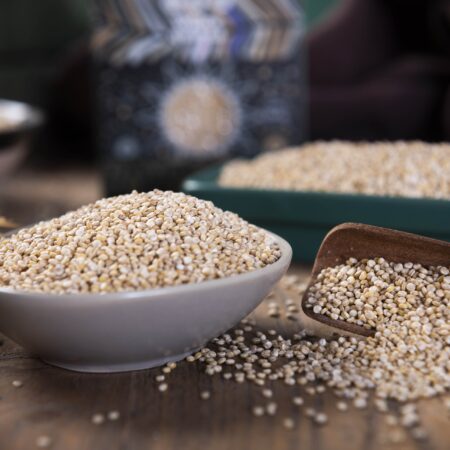
Quinoa Seeds
Quinoa (pronounced keen-wah) is a nutrient-rich pseudocereal that is often treated as a grain in culinary contextsQuinoa is highly nutritious, containing a balanced profile of essential nutrients. It is a good source of protein, dietary fiber, vitamins (especially B vitamins), and minerals (such as iron, magnesium, and phosphorus).Quinoa is unique among plant-based foods as it provides all nine essential amino acids, making it a complete protein. This makes it an excellent protein source for vegetarian and vegan diets.Quinoa is naturally gluten-free, making it suitable for individuals with gluten sensitivities or celiac disease.Quinoa has been cultivated for thousands of years in the Andean region of South America and was considered a sacred crop by the Inca civilization.
-
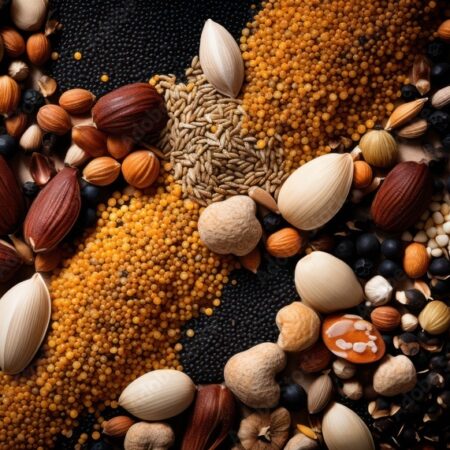
Seven Seeds
Seven Seeds” typically refers to a blend of seven different types of seeds that are often combined for their nutritional benefits. The specific seeds included in the blend may vary, but commonly used seeds in such blends include:
1.Chia Seeds: Rich in omega-3 fatty acids, fiber, and antioxidants.
2.Flax Seeds: Packed with omega-3 fatty acids, fiber, and lignans.
3.Sunflower Seeds: Provide healthy fats, protein, and various vitamins and minerals.
4.Pumpkin Seeds: A good source of protein, healthy fats, and minerals like zinc and magnesium.
5.Sesame Seeds: Contain healthy fats, protein, and minerals like copper and manganese.
6.Hemp Seeds: Rich in omega-3 and omega-6 fatty acids, protein, and minerals.
7. Poppy Seeds: Provide dietary fiber, B vitamins, and minerals like calcium and magnesium.
-
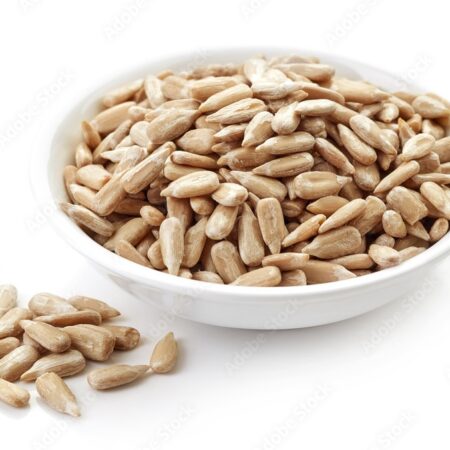
Sunflower seeds
Sunflower seeds are the edible seeds harvested from the sunflower (Helianthus annuus) plant. Sunflower seeds are enclosed within the large head of the sunflower, and each seed is found at the centre of a disk-like structure called the sunflower head. Sunflower seeds are a nutrient-dense snack, containing healthy fats, protein, fibre, vitamins (especially vitamin E), and minerals (such as magnesium, phosphorus, and selenium). Sunflower seeds offer several health benefits, including supporting heart health, providing antioxidant protection, and contributing to bone health due to their magnesium content. Sunflower seeds are a particularly good source of vitamin E, an antioxidant that helps protect cells from damage.
-
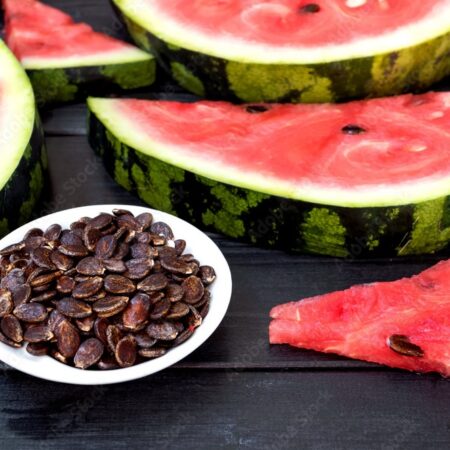
Watermelon seeds
Watermelon seeds are the small, edible seeds found in the centre of watermelon fruit. Watermelon seeds are a nutritious snack, containing protein, healthy fats, fibre, vitamins (such as B vitamins), and minerals (including iron, magnesium, and zinc). Watermelon seeds offer health benefits, including protein for muscle health, fibre for digestive health, and essential minerals that contribute to overall well-being. Watermelon seeds contain antioxidants that help protect the body from oxidative stress and inflammation.

